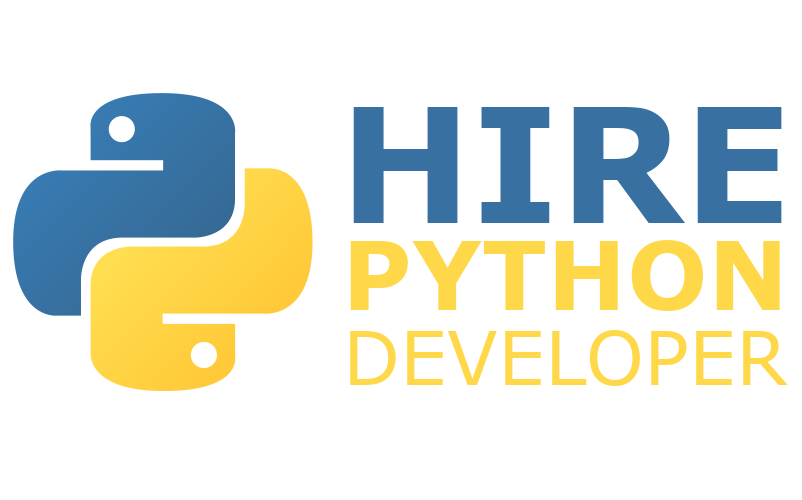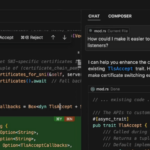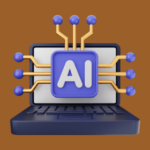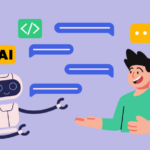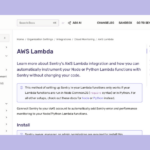Artificial intelligence is revolutionizing software development, and Python sits at the heart of this transformation. As one of the most popular programming languages for machine learning, web apps, automation, and APIs, Python is now easier to write, debug, and deploy than ever before—thanks to powerful AI coding tools.
These tools don’t just autocomplete code. They help you design logic, generate functions from plain English, suggest libraries, test your code, and even fix bugs before they become problems. For Python developers working on anything from data pipelines to full-stack apps, AI tools can save hours of time and reduce cognitive overhead.
Why Use AI Tools for Python App Development?
Python’s popularity is due in part to its clean syntax and massive ecosystem. But building real-world applications involves much more than writing a few lines of code. You need to deal with:
Dependency management
Package integration
Testing and debugging
Documentation and code reviews
Framework setup (Django, Flask, FastAPI, etc.)
Code maintenance and refactoring
AI coding tools can support all of the above. Some focus on writing Python code from scratch, while others assist in refining logic, writing tests, managing large codebases, and collaborating with teams.
Here are some reasons to adopt AI tools in your Python dev process:
Faster Prototyping: Turn ideas into working code in minutes
Higher Code Quality: Spot errors and improve readability before running
Better Testing: Generate unit tests with minimal effort
Simplified Debugging: Understand error messages and find root causes
Reduced Context Switching: Stay in your IDE with smart inline suggestions
Let’s explore the top tools that can make this happen.
1. GitHub Copilot: The Leading AI Code Assistant
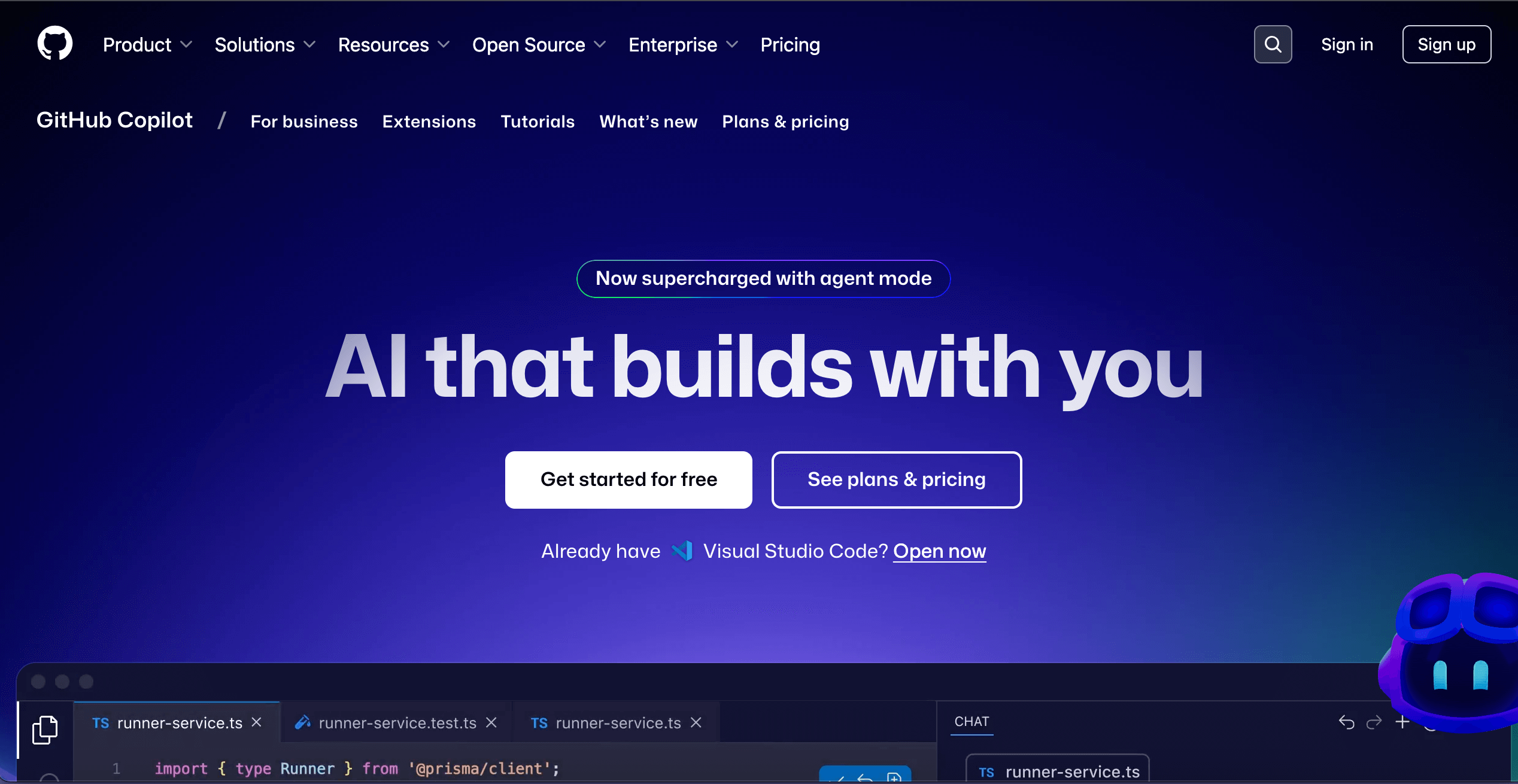
What It Does: Code autocompletion, boilerplate generation, and real-time pair programming
GitHub Copilot is powered by OpenAI’s Codex and trained on billions of lines of code. It integrates seamlessly into IDEs like VS Code, JetBrains, and Neovim, and it’s the most widely adopted AI assistant for Python developers.
Best Use Cases for Python:
Writing Flask or Django boilerplate code
Handling repetitive data manipulation in Pandas or NumPy
Creating REST APIs and endpoints
Implementing async functions with FastAPI
Strengths:
Works in real time as you type
Context-aware suggestions
Supported by Microsoft and GitHub
Weaknesses:
Can suggest incorrect or insecure code
Doesn’t deeply understand entire project logic
Pricing:
Free for students and verified open-source contributors
$10/month for individuals
$19/month per user for business accounts
Verdict: Ideal for developers looking for a fast, in-IDE experience to speed up Python scripting and development.
2. ChatGPT by OpenAI (GPT-4)
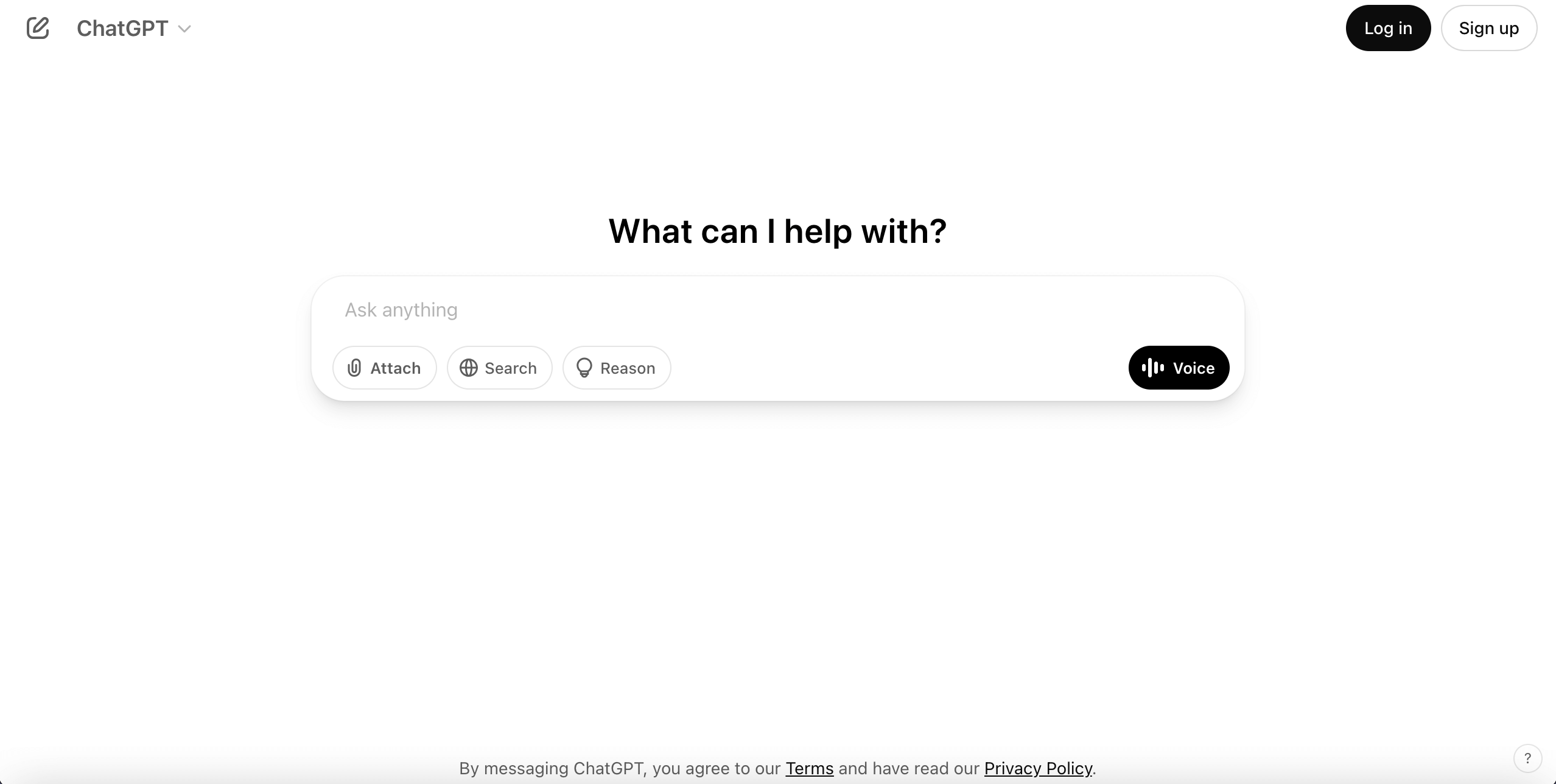
What It Does: Natural language-to-code generation, explanations, and debugging help
OpenAI’s GPT-4, accessible through ChatGPT Plus, is a flexible tool that can act like a coding tutor, code reviewer, and brainstorming partner all in one.
Best Use Cases for Python:
Explaining third-party libraries
Refactoring or simplifying complex logic
Converting pseudocode into real Python functions
Designing backend architectures or workflow diagrams
Debugging large scripts or logic chains
Strengths:
High-quality code generation
Clear explanations for beginners
Flexible chat interface for step-by-step guidance
Weaknesses:
Not embedded in IDEs unless using plugins
Can produce verbose or redundant suggestions
Pricing:
Free (GPT-3.5)
$20/month for GPT-4 via ChatGPT Plus
Verdict: Best for developers who want detailed explanations and iterative code development outside of a traditional IDE.
3. Windsurf (formerly Codeium)

What It Does: AI-assisted testing, test coverage improvement, and refactoring
Windsurf (formerly Codeium) is focused on improving the quality of your code through automated test generation and suggestions based on code intent.
Best Use Cases for Python:
Writing test cases for Django models and views
Unit testing Flask routes and business logic
Detecting untested code paths
Explaining function behavior before running tests
Strengths:
Auto-generates meaningful unit tests
Works inside JetBrains and VS Code
Understands Python libraries like pytest and unittest
Weaknesses:
Still evolving as a platform
May miss edge cases without fine-tuning
Pricing:
Free for individuals
Team and enterprise pricing coming soon
Verdict: Excellent for developers who want to maintain high code quality and automate their testing workflow.
4. Amazon Q (Formerly CodeWhisperer)
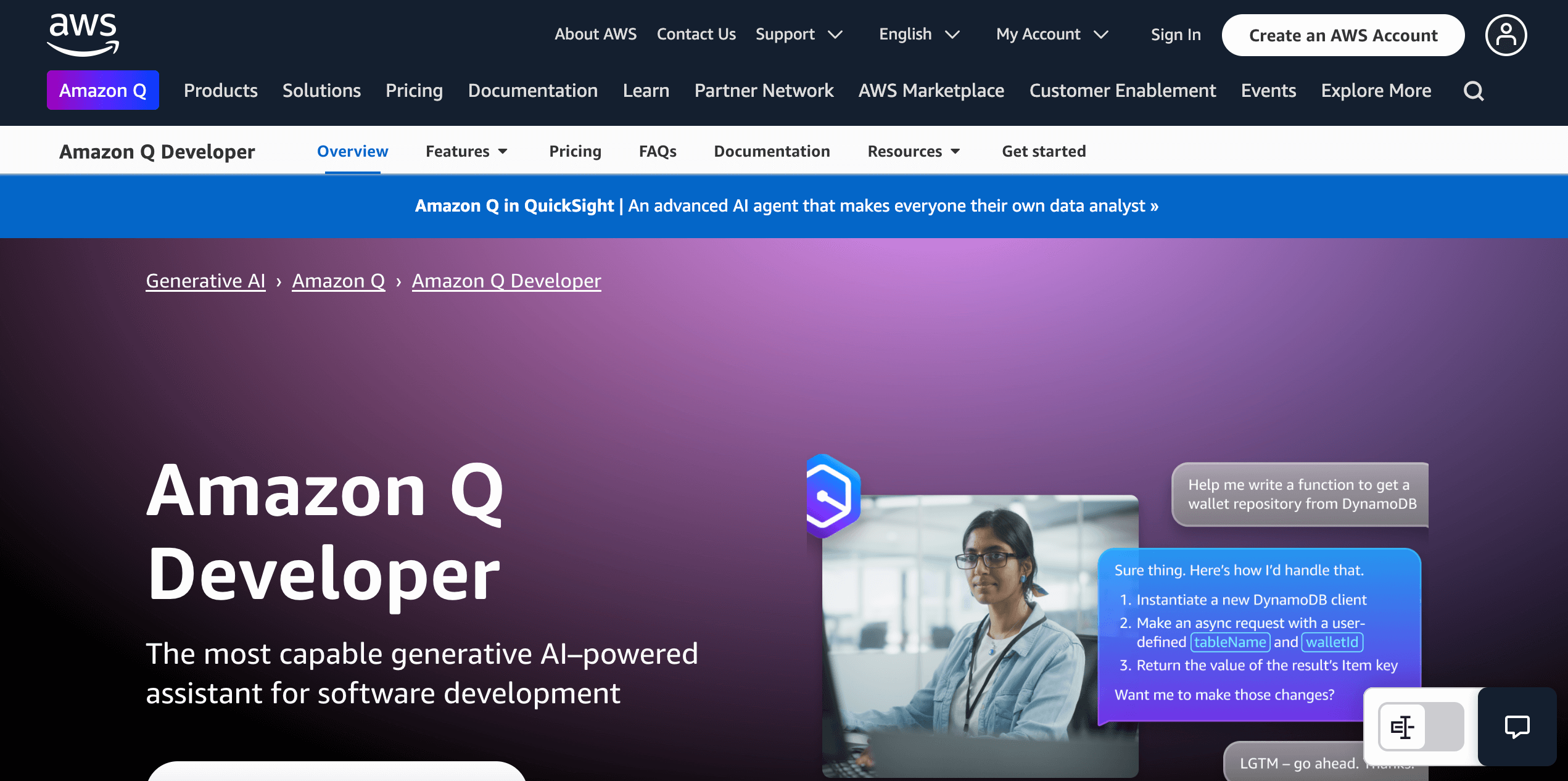
What It Does: Real-time code suggestions optimized for AWS development
Amazon Q is designed to help developers build secure, scalable applications, especially for cloud-native services on AWS.
Best Use Cases for Python:
Writing Lambda functions in Python
Integrating with AWS services like S3, DynamoDB, or SNS
Creating infrastructure-as-code using Boto3
Detecting hardcoded secrets and insecure logic
Strengths:
Security scanning built in
Great for serverless and API-driven apps
Deep AWS ecosystem knowledge
Weaknesses:
Limited for general-purpose Python scripting
Works best with AWS-focused projects
Pricing:
Free tier available
$19/month for Pro tier with full features
Verdict: The go-to tool for developers building Python applications on AWS infrastructure.
5. Tabnine
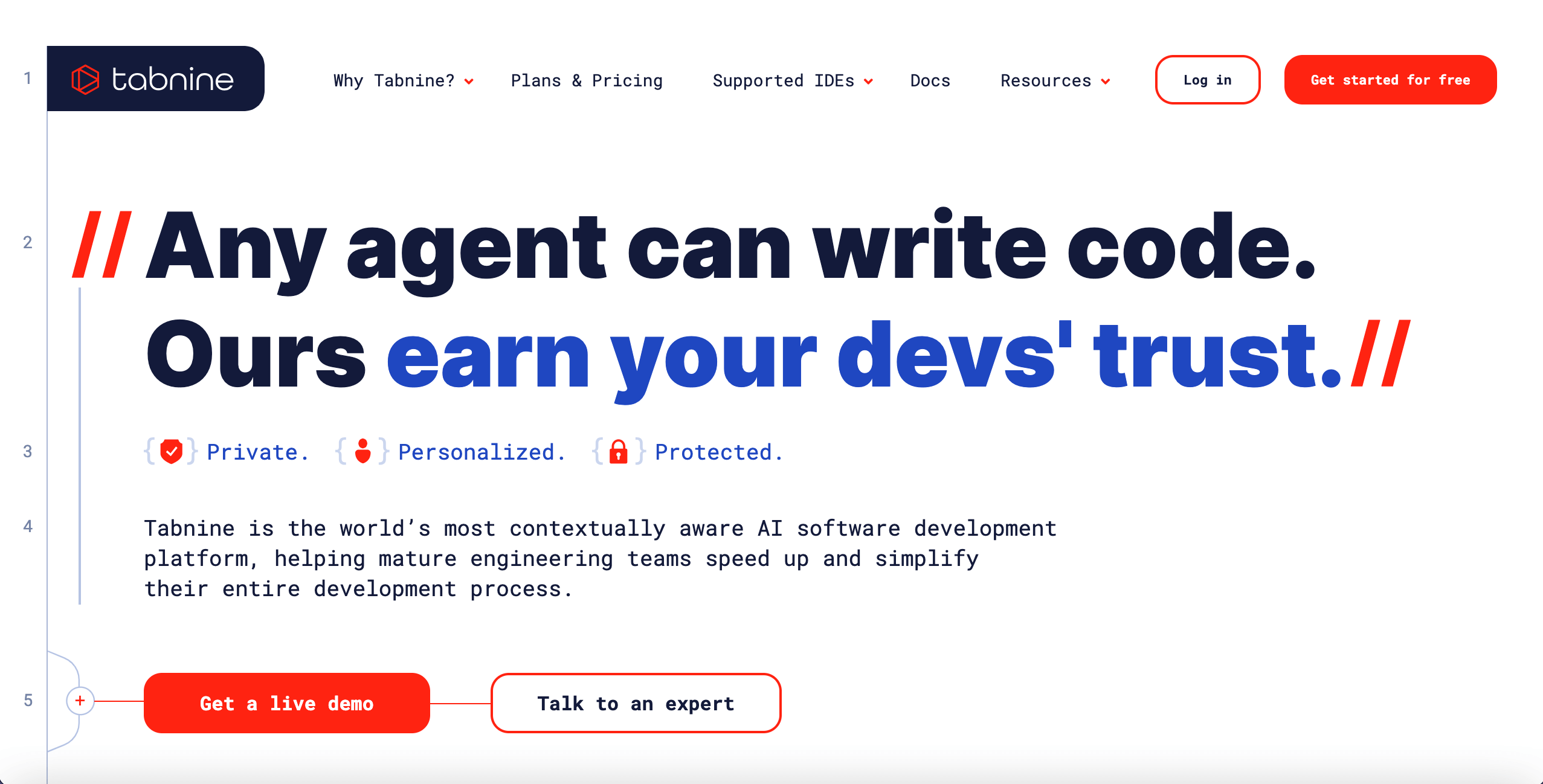
What It Does: Code completion and private AI training on your own codebase
Tabnine is built with enterprise-grade security in mind. It offers the ability to run AI models locally or train them on your team’s proprietary Python repositories.
Best Use Cases for Python:
Working with sensitive or regulated data
Following team-specific coding conventions
Coding in secure, offline environments
Strengths:
Works in over 15 IDEs
Privacy-first development
Learns and adapts to your code
Weaknesses:
Not conversational or chat-based
Less helpful for new or unfamiliar libraries
Pricing:
Free trial for individuals
$12/month for Pro
Enterprise plans available
Verdict: Ideal for enterprise teams or developers working on proprietary Python projects who value code privacy.
6. Replit AI (Ghostwriter)
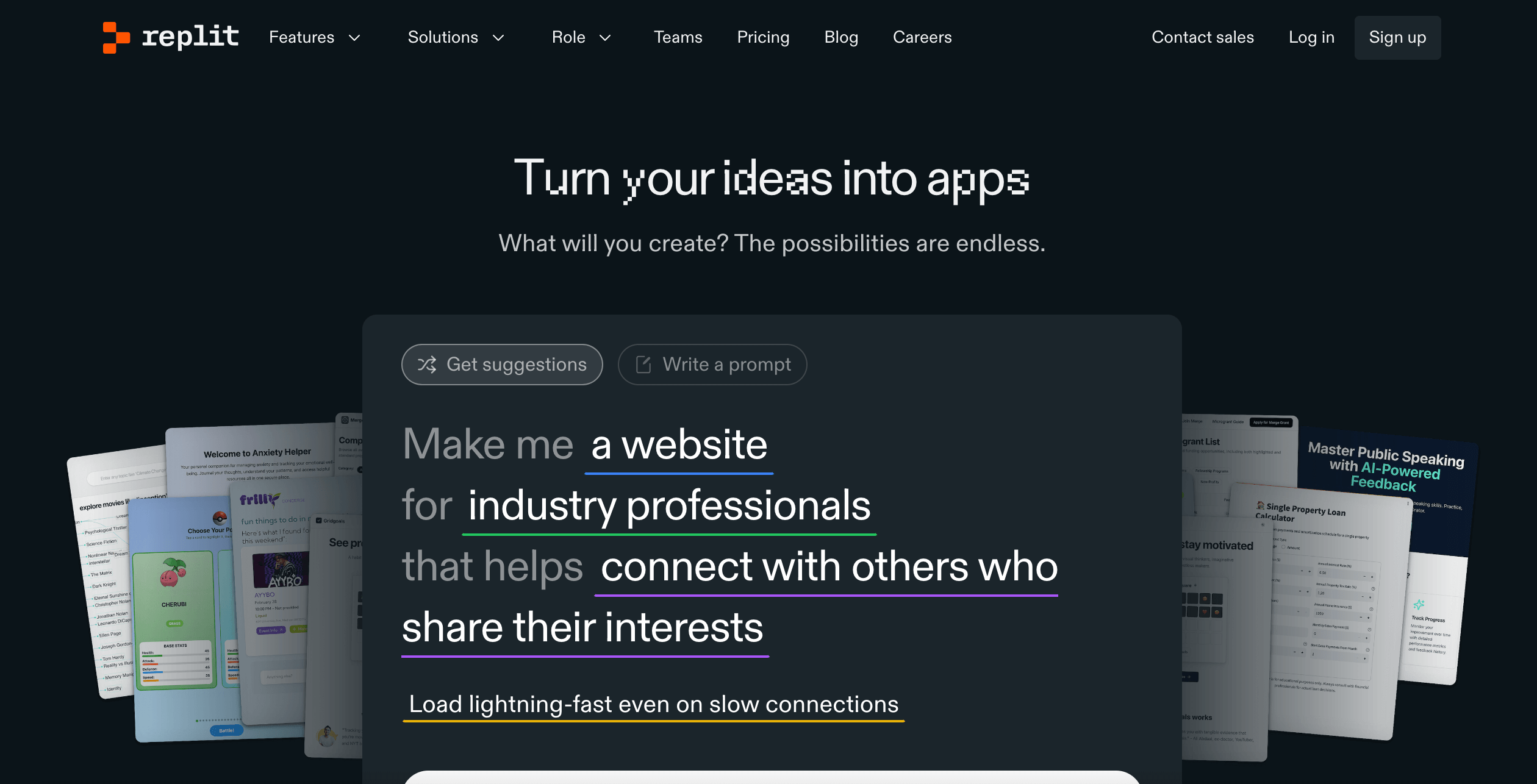
What It Does: Full-stack development with integrated AI code assistance in the browser
Replit AI is part of the Replit platform, offering in-browser Python development with real-time AI suggestions and live testing.
Best Use Cases for Python:
Prototyping small apps or games
Building and deploying simple Python web apps
Real-time pair programming
Education and teaching environments
Strengths:
Fully browser-based
Great for beginners or hobbyists
Live collaboration and deployment
Weaknesses:
Not ideal for large projects
Internet connectivity required
Pricing:
Free basic access
$20/month for Core plan
Verdict: A perfect platform for learning, prototyping, or building MVPs with minimal setup.
7. AskCodi
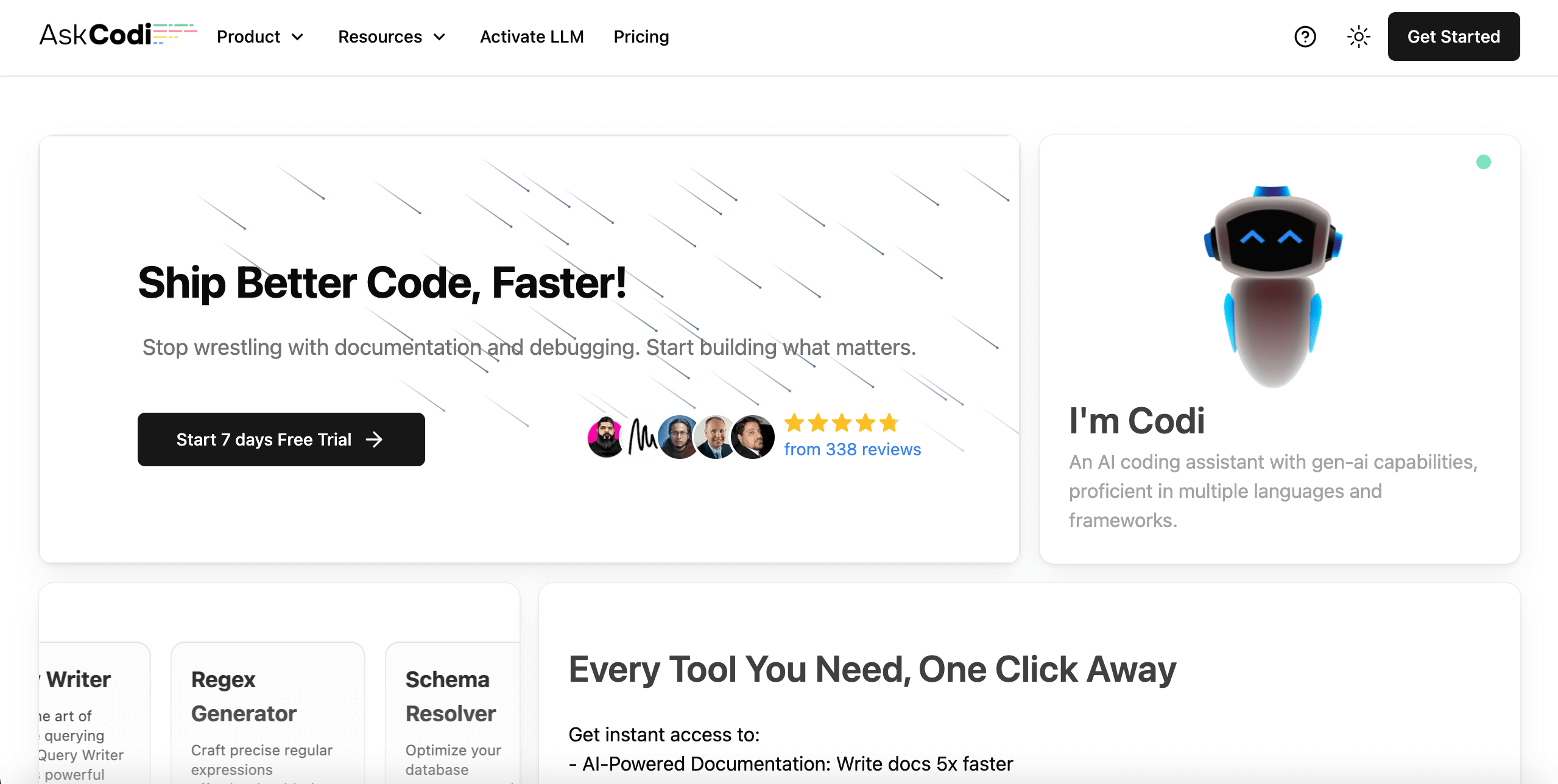
What It Does: Converts plain English into Python code with contextual help
AskCodi is a niche tool that specializes in converting human language into accurate Python code, especially for database queries and general logic.
Best Use Cases for Python:
Writing SQL queries from natural language
Creating small utility scripts
Generating regex patterns, APIs, or loops
Debugging specific syntax questions
Strengths:
Lightweight and fast
Helps with niche language tasks (regex, SQL, etc.)
Useful for non-developers dabbling in Python
Weaknesses:
Not robust for full-scale app development
Best used as a helper tool alongside other IDEs
Pricing:
Free with limited features
Starts at $9.99/month
Verdict: Best for small, syntax-driven Python tasks and utility scripts.
Bonus: Tools That Complement AI Coding for Python
While not AI code generators, the following tools supercharge your Python development when used alongside AI coding assistants:
Black / Ruff: Format and lint your AI-generated code
Pyright / MyPy: Add type-checking to catch errors early
Docker + Docker Compose: Deploy Python apps consistently across environments
GitHub Actions: Automate testing and deployment pipelines
Postman or Insomnia: Test your API endpoints generated by AI tools
These tools help enforce standards, simplify deployment, and catch bugs before production.
AI coding tools are no longer future tech—they’re part of the present-day development process. For Python developers, these tools act like smart assistants, accelerating your work without replacing your thinking. Whether you’re launching a microservice, building a dashboard, automating tasks, or writing tests, there is an AI tool ready to support you.
To recap:
Use GitHub Copilot for in-IDE Python speed
Use ChatGPT for exploration and learning
Use CodiumAI to improve testing
Use Amazon Q for cloud-native Python projects
Use Tabnine if privacy and team control matter
Use Replit AI to develop from anywhere
Use AskCodi for natural-language code snippets
Adopting these tools doesn’t mean giving up control of your code. It means enhancing your creativity, reducing friction, and focusing on the core logic that makes your Python app unique.
Frequently Asked Questions About AI Tools for Python Development
1. Can AI coding tools replace human Python developers?
No, AI coding tools are not a replacement for skilled Python developers. These tools assist with code generation, bug detection, and repetitive tasks, but they lack true understanding of your project’s goals, architecture, and business logic. Human oversight is always necessary to validate, optimize, and secure AI-generated code.
2. What’s the best AI tool for writing Python code from scratch?
GitHub Copilot is the most widely used AI tool for writing Python code from scratch within an IDE. If you prefer a conversational approach or want help brainstorming, GPT-4 via ChatGPT offers excellent flexibility in generating and refining Python functions from plain language.
3. Are these AI tools safe to use for commercial or proprietary Python apps?
It depends on the tool. Platforms like Tabnine offer on-device or self-hosted models that protect your source code. GitHub Copilot and Amazon Q have enterprise plans that address data security. Always review the tool’s data handling and storage policies, especially if you’re working in a regulated industry or handling sensitive data.
4. Which AI tool helps the most with testing Python applications?
CodiumAI specializes in test case generation and helps Python developers write unit, integration, and edge tests. It’s ideal for boosting test coverage and ensuring that your application logic is thoroughly validated before deployment.
5. Do I need to install anything to use AI for Python development?
Some tools, like GitHub Copilot and Tabnine, require plugins for IDEs such as VS Code or JetBrains. Others, like ChatGPT or Replit AI, are browser-based and require no installation. Choosing the right tool depends on whether you prefer to work locally or in a web-based environment.
6. Can I use AI tools to debug existing Python code?
Yes. Tools like ChatGPT, Claude, and Replit AI can analyze your existing Python code and help identify logic errors, syntax mistakes, or performance issues. You can paste code into these tools and ask for explanations, suggestions, or fixes.
7. Are there free AI tools for Python developers?
Yes. Most tools offer free tiers:
GitHub Copilot is free for verified students and open-source contributors
ChatGPT has a free version using GPT-3.5
Replit AI includes a basic free tier
Tabnine offers a free trial
CodiumAI is free for individuals
Keep in mind that free versions may have limitations on features, response quality, or usage hours.
8. What AI coding tool is best for cloud-based Python apps?
Amazon Q (formerly CodeWhisperer) is the best choice for Python developers working with AWS services. It’s tightly integrated with the AWS ecosystem and provides security scans, serverless architecture suggestions, and real-time assistance tailored for cloud deployment.
9. How accurate is AI-generated Python code?
Accuracy depends on the complexity of your task, the quality of your prompts, and the tool you’re using. For standard patterns and libraries, tools like Copilot or GPT-4 can generate accurate code. However, you should always review and test the output before using it in production.
10. Can beginners use AI tools to learn Python?
Absolutely. Tools like ChatGPT, Claude, and Replit AI are excellent for learning. They can explain syntax, break down code line by line, and even teach Python concepts through examples. Just remember that learning the fundamentals is still essential—AI can guide, but it can’t replace hands-on practice and understanding.
